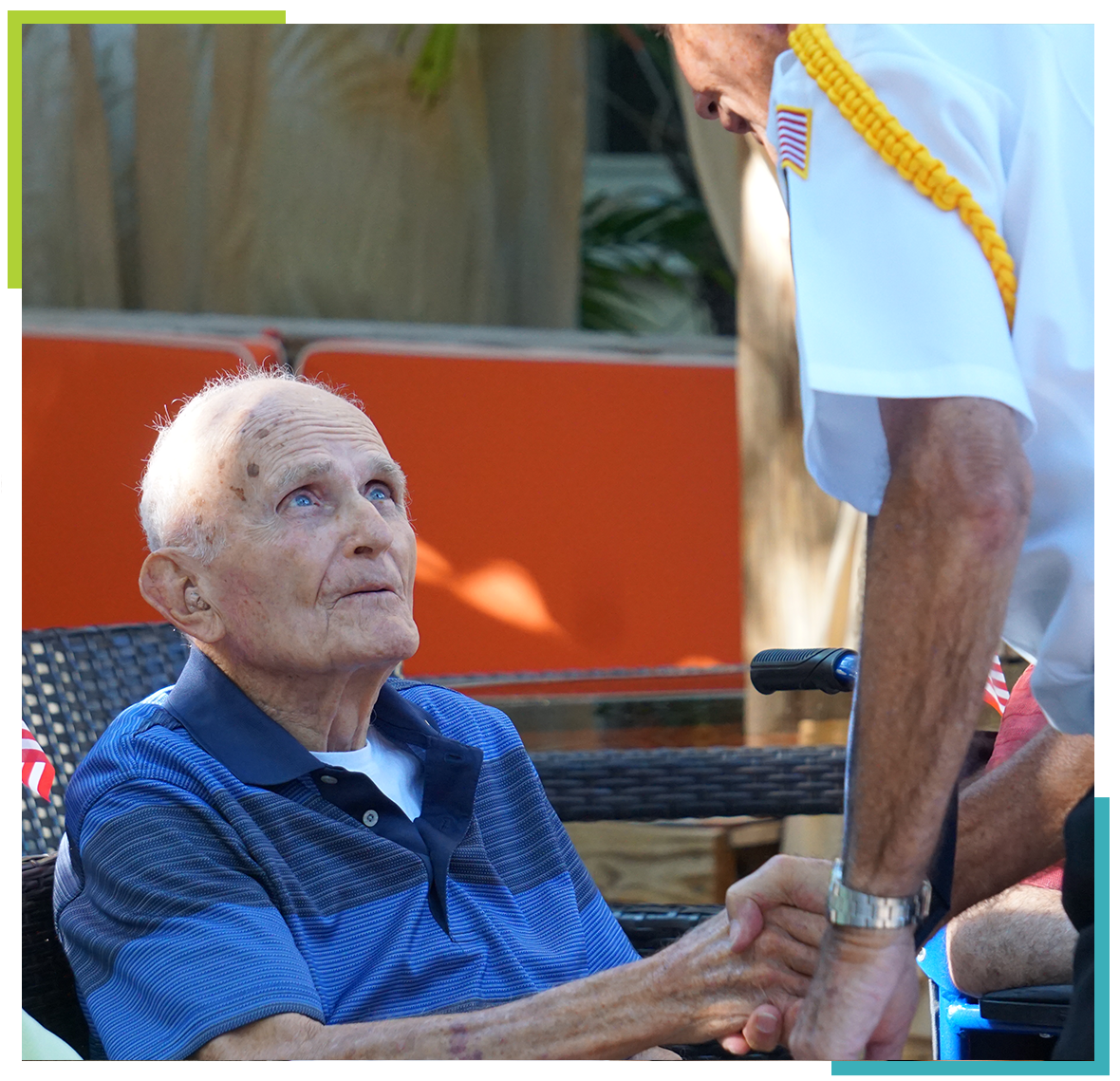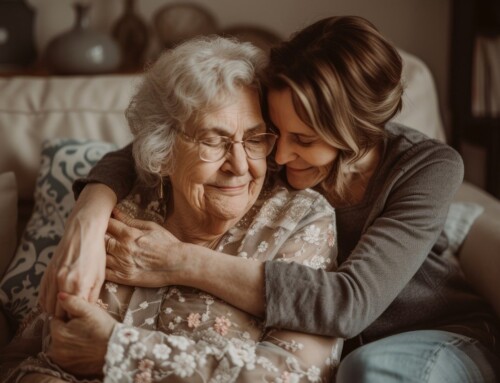Dementia is a progressive condition that typically attacks the memory of senior citizens. Dementia can look very different from person to person and may progress slowly or rapidly, depending on the situation. To determine what stage of dementia progression your loved one may be experiencing – we offer these general tips.

Did You Know? There are seven stages of dementia identified by experts. Healthy people at any age are considered stage 1 or “normal.” Dementia symptoms begin at Stage 2.
- Subjective Memory Loss / Age-Related Forgetfulness: It is common for those over 65 to begin to experience cognitive or functional issues. This may include forgetting names more frequently or losing everyday items (like keys) frequently. The cognitive slip at this stage is generally not noticed by others, even those who are closest to the patient. These symptoms can be normal and do not necessarily indicate dementia. In fact, a healthy senior may experience these symptoms for up to 15 years without any decline. Those with dementia, however, will experience cognitive decline.
- Mild Cognitive Impairment: Those who progress to the next stage of dementia will start to manifest subtle symptoms, usually only discernible to those who spend time with the patient. Those with mild cognitive impairment (MCI) often ask the same questions repeatedly and may no longer be able to perform complex or executive-level cognitive functions. MCI individuals may no longer be able to plan events, outings, or appointments, and anxiety most often sets in at this stage. Once dementia has reached this stage, the individual should seek medical help to identify if the symptoms are due to Alzheimer’s or some other issue.
- Moderate Cognitive Decline / Mild Dementia: If symptoms progress, Alzheimer’s disease can generally be diagnosed at this stage of dementia progression. An individual may struggle to pay bills, shop for groceries, or follow a recipe. Memory loss is easily recognizable at this point, and although they still may be able to remember things like their address, fine details are often lost. Indications of obvious decline can be recognized, but the individual may still be independent. Seniors at this stage of dementia begin experiencing less emotion and interaction. Because of their cognitive decline, they may be embarrassed or try to hide their condition from others.
- Moderately Severe Cognitive Decline / Moderate Dementia: In the next stage, independent living becomes impractical and unsafe. The characteristic trait at this stage of dementia is the inability to perform ADLs (activities of daily life). This means that the individual cannot function on their own, and a caregiver is needed to facilitate adequate care and nutrition. From a cognitive perspective, daily events and details of their current life are often forgotten.
- Severe Cognitive Decline / Moderately Severe Dementia: Alzheimer’s patients at this stage typically cannot bathe or dress without assistance, and other hygiene becomes an issue as well. They exhibit little cognitive awareness of most aspects of their own life or what is happening around them. Cognitive decline is so serious at this stage that they may not recognize their spouse or may mistake a friend for their daughter. Speech may also become impaired at this stage. At this point, emotional changes are glaring and can be upsetting. There are often verbal outbursts and threatening, violent words or actions. The individual may express dread of being left alone and may also be unable to stop pacing or fidgeting.
- Very Severe Cognitive Decline / Severe Dementia: By the final stage of dementia, speech is typically gone, and the individual requires constant care. The ability to smile or hold one’s head up may be lost, and while this stage can linger, developing potentially fatal conditions such as pneumonia is very possible.
While the early stages of dementia are typically manageable for a family caregiver, professional care may be preferable in the latter stages of dementia progression. If you have a loved one living with dementia and you need assistance, we invite you to visit A Banyan Residence in the Villages to learn more.







